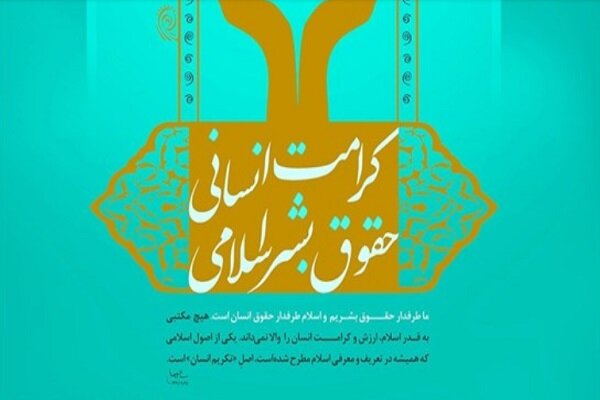Islamic Human Rights and Human Dignity conference held in Tehran

TEHRAN – On Wednesday, Tehran was host to a conference on “Islamic Human Rights and Human Dignity”. The event was staged at the Islamic Republic of Iran Broadcasting Conference Center.
Hojjatoleslam Ebrahim Raisi, the Judiciary chief, was one of the speakers of the conference. Referring to letters to the youth by the Leader of the Islamic Revolution Ayatollah Ali Khamenei, Raisi said these letters have sparked search for truth and enmity towards the West.
“Today, the important thing is that those who pretend to human rights, are the biggest violators of it,” Raisi said, according to Mizan news agency
He said all human beings have a right to decide their lives, their freedom of speech, and freedom of thought.
“If human rights is to be considered as a mere declaration, the result would be that one day Iraq finds American boots on its soil in the name of human rights.”
He added, “The things that can hamper the monopoly of the monopolizing system is Islam. That is the reason why they decided to fight the Islamic Republic, which is the focal center of Islam.”
Another speaker at the conference was Foreign Minister Mohammad Javad Zarif, who said that Iran’s power is intrinsic, originating from people. “Security, legitimacy, progress and independence do not have external sources,” he stressed.
“We never purchase or sell security because our progress and legitimacy originate from our people,” he reiterated, IRNA reported.
Some countries assume that security is purchasable, or they can guarantee it by paying for it or through arms deal, Zarif said.
Describing the U.S. sanctions against Iran as “terrorism”, he said that the U.S. hostile measures have targeted people and the entire humanity.
Referring to the financial and logistic support of some states in the region and the West during the war by the former Iraqi regime against Iran, the foreign minister said “Saudi Arabia gave 75 billion dollars worth of arms to Saddam's regime to fight Iran and kill Iranian people, but it did not understand that money does not lead to security, as former dictator Saddam Hussein used the same weapons against Saudi Arabia afterwards.”
“Yesterday was the 74th anniversary of Hiroshima nuclear bombing,” he said adding that nuclear weapons are based on an ideology that prefers to kill hundreds of thousands of people to put an end to a war.
Defining terrorism as use of force to impose intended political goals, Zarif quoted the U.S. Secretary of State Mike Pompeo as saying that the U.S. will exert maximum pressure on Iranian people so that they themselves change their government.
“If this is not terrorism, what else can it be?” Zarif asked.
This is a policy the discourse of which is based on imposition, eradication, expansionism and absconding, he said.
The Iranian diplomat also emphasized that according to Ayatollah Khamenei, Iran will never use nuclear weapons, so others should not fear having a nuclear Iran. “Rather they fear Iran's discourse and approach,” he added.
He noted that what was formed under the pretext of non-proliferation was only a means to impose sanctions on Iran, as those who were the founders of the non-proliferation system did not spare any effort to help Saddam in using the same weapons against Iran.
Criticizing the pressures on Iran to stop manufacturing its own weapons, the foreign minister reiterated that Iran will not outsource its security.
“We are prepared to cooperate,” he said, “We have proved that we are not seeking conflicts, but our discourse cannot be changed either.”
The discourse that emphasizes human rights is not only a divine responsibility, rather it is also a necessity to a man’s national security, the foreign minister said.
SP/PA
